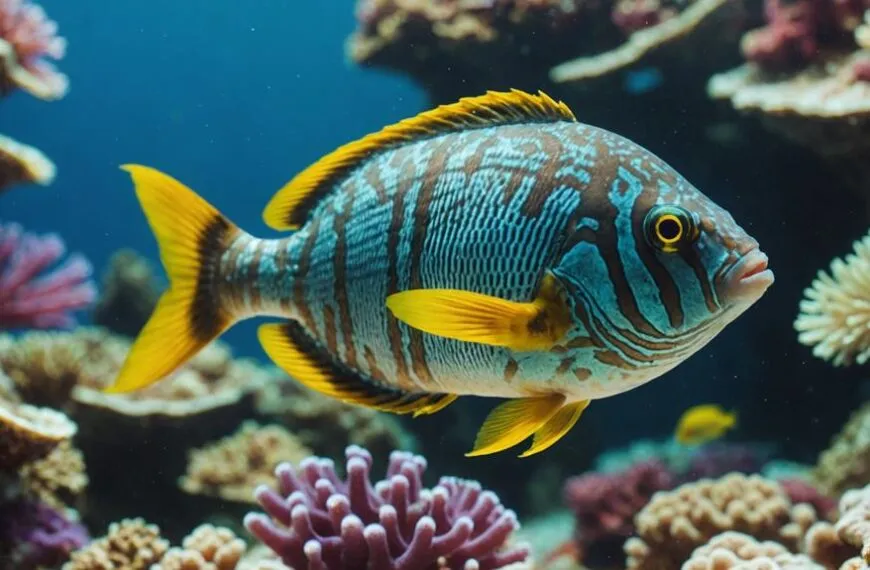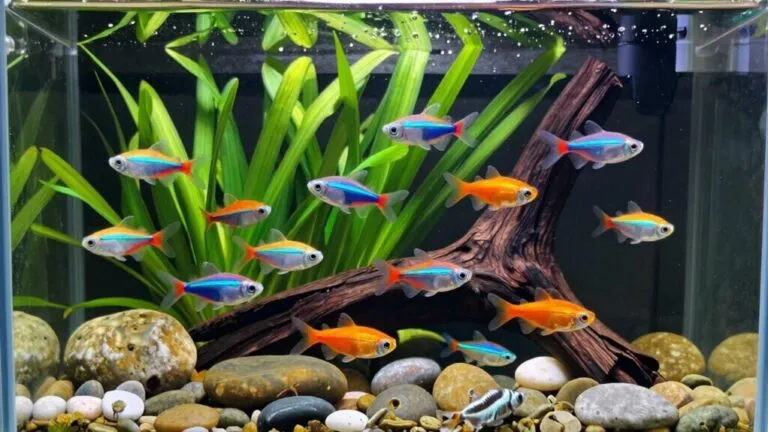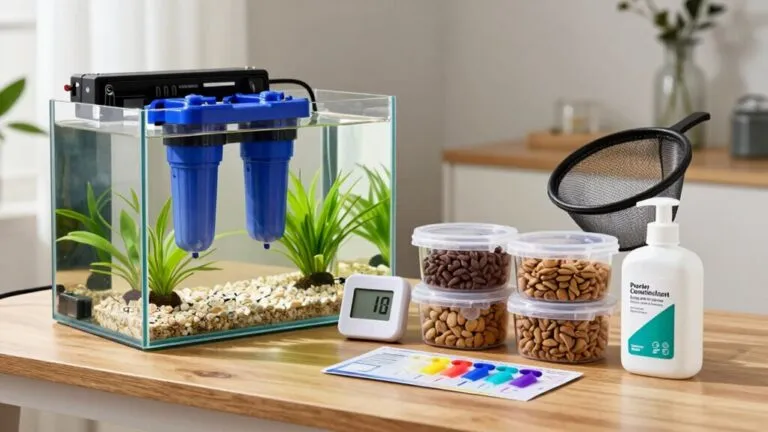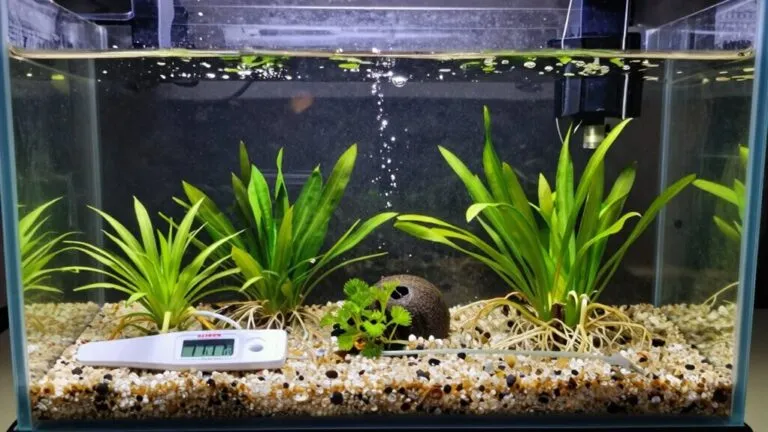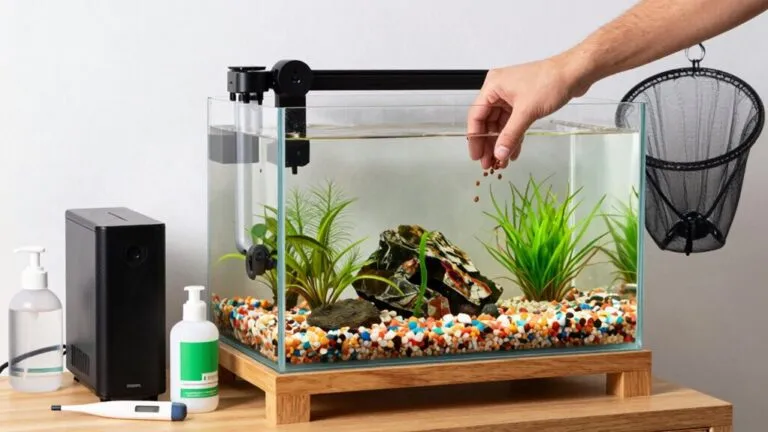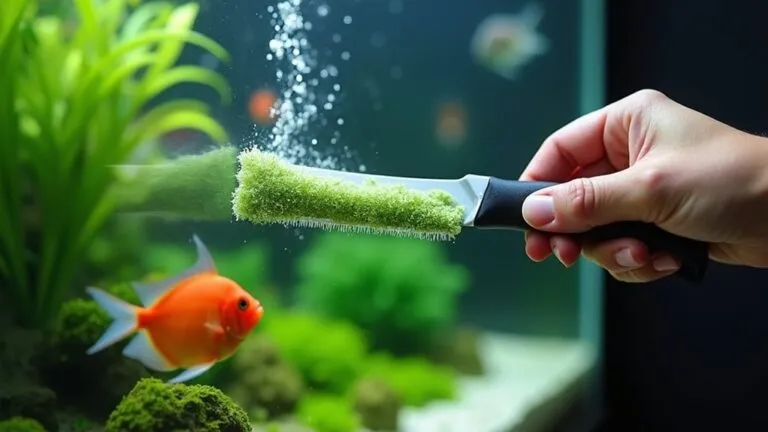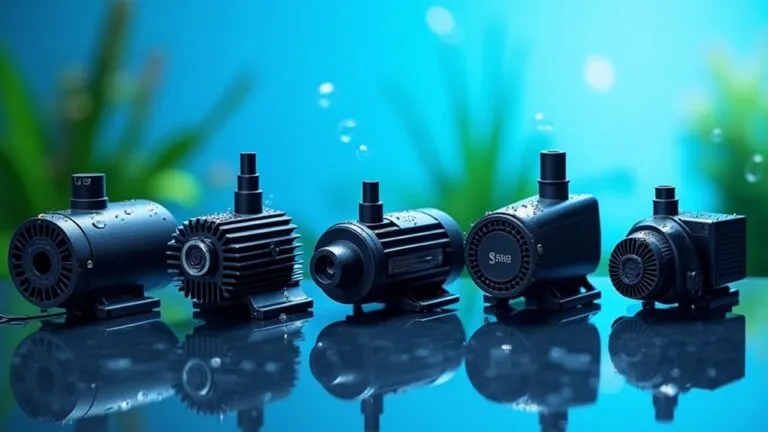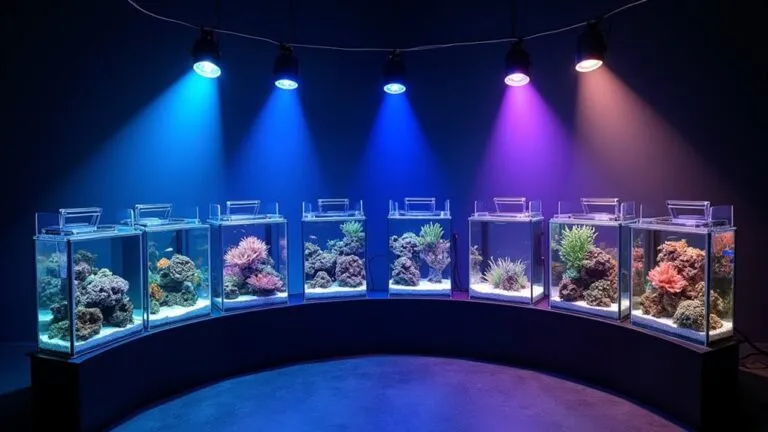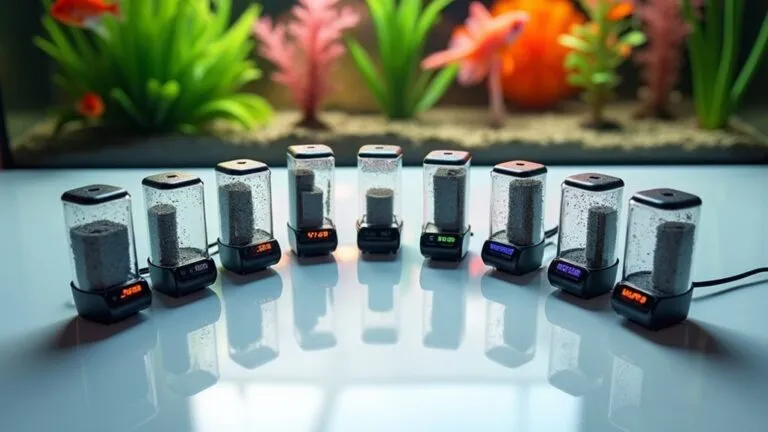Managing fish health issues is easier than you think! First, always monitor your water quality; keep those levels just right. Next, make sure you're providing balanced nutrition—your fish deserve gourmet meals, not leftovers. Observe their behavior too; if they're acting sluggish, something's up. Implement stress reduction techniques like gentle handling and creating cozy hiding spots. Lastly, don't be shy—consult health specialists for expert advice; they'll keep you and your fish swimming smoothly. With these tips, you'll keep those gills flapping and those fins waving, and there's plenty more to explore to ensure a happy tank!
Contents
Monitor Water Quality
Monitoring water quality is crucial to maintaining fish health in any aquaculture system. You know it's not just about adding water and hoping for the best. Regularly testing parameters like dissolved oxygen, ammonia, and temperature can make all the difference.
Aim for dissolved oxygen levels above 5 mg/L, especially in crowded tanks. Fish need their air too! Additionally, keeping nitrate levels below 20 ppm is essential to prevent stress and promote well-being in your aquatic friends, especially in densely populated aquariums optimal nitrate levels.
Keep an eye on ammonia levels, too; they should stay below 0.02 ppm. High ammonia can stress your fish and make them more prone to diseases. It's like putting them in a bad mood—no one wants that!
Temperature is another key player in the fish health game. Sudden changes can cause stress and even invite pathogens to the party. So, monitor those fluctuations closely!
Frequent assessments, ideally daily, allow you to catch problems early. Think of it like checking in on a friend; you want to know how they're doing before things get out of hand.
Provide Balanced Nutrition
Maintaining water quality lays the groundwork for providing balanced nutrition to your fish. A well-balanced diet is essential for fish health and resilience, especially for small species like Endlers and Guppies that thrive in community tanks. Without it, your fish might face immune system suppression and nutritional diseases like anemia.
So, make sure you're offering high-quality, nutritionally complete diets tailored to their specific needs.
Don't forget about proper feed storage! Ideally, you should use your feed within 90 days of purchase. This helps maintain its nutritional value and keeps it from deteriorating—because no one wants to serve stale snacks, right?
Pay attention to essential nutrients, including proteins, fats, vitamins, and minerals. These goodies are vital for your fish's overall wellness.
Also, keep an eye on their feeding behaviors. Changes can signal stress factors or health issues, which means timely interventions may be needed.
Working with aquaculture extension agents is a smart move. They can help you develop a diet plan that meets your fish's needs while considering their environment.
Observe Fish Behavior

Observing fish behavior is crucial for spotting potential health issues early on. When you take the time to monitor your fish, you'll notice that healthy fish are usually active, eagerly darting around and showing curiosity about their surroundings. If you see signs of illness, like lethargy or gasping at the surface, it's a clear signal that something's off.
It's also important to consider the social dynamics of your tank, as choosing peaceful species can greatly impact overall fish behavior and reduce stress social behavior impacts. Missing feeding times can also raise red flags.
Sudden changes in behavior, such as increased hiding or unexpected aggression, may indicate stress or illness. These issues can escalate quickly, leading to bigger problems if not addressed promptly. By keeping a close eye on daily activity patterns, you can establish what's normal for your fish, making it easier to catch any deviations.
Don't forget to pair your behavior observations with regular water quality checks. This holistic approach to health management can make all the difference.
Implement Stress Reduction Techniques
To keep your fish healthy and thriving, implementing stress reduction techniques is essential. Stress can wreak havoc on your fish's immune system, making them more vulnerable to disease.
Start by ensuring optimal water quality—maintaining stable temperature and dissolved oxygen levels can prevent stress caused by fluctuations.
When it comes to handling your fish, remember that gentle is the name of the game. Use soft nets and minimize transfer time during management tasks to reduce stress responses.
Overcrowding is another big no-no; providing adequate space in your aquaculture system can help prevent aggression and boost your fish's overall health.
Incorporating shelters and hiding spots in their environment can make your fish feel secure, allowing them to express their natural behaviors.
Lastly, don't forget about nutrition! A consistent feeding schedule with high-quality food minimizes competition for meals and supports a healthy immune system.
Consult Health Specialists

Regularly consulting health specialists is vital for managing fish health effectively. When you consult health specialists, like those in aquaculture extension, you're not just getting advice; you're gaining partners in your fish-keeping journey.
They offer tailored recommendations for water quality management, nutrition, and biosecurity protocols, which are crucial for the prevention of disease and managing fish health issues.
Access to public laboratories for disease diagnosis can help you identify any lurking pathogens before they turn into fish disease outbreaks. It's like having a fish health detective on your team!
Frequently Asked Questions
How to Control Fish Diseases?
To control fish diseases, implement quarantine procedures, maintain optimal water quality, reduce stress through proper feeding practices, ensure tank cleanliness, use observation techniques, and choose compatible species while exploring medication options for effective disease prevention.
How Do You Treat Unhealthy Fish?
To treat unhealthy fish, monitor water quality and observe behavioral signs. Use medication options and dietary adjustments, implement quarantine procedures, and manage stress factors. Ensure proper environmental control and maintain treatment duration for optimal recovery.
What Are the 3 Most Serious Problems Involved in Fish Farming?
Did you know nearly 50% of aquaculture losses stem from diseases? To combat this, focus on water quality, parasite control, biosecurity measures, and stress reduction through proper feed management and tank maintenance for healthier fish.
What Are the Health Issues With Fish?
Fish health issues often stem from parasites, poor water quality, and stress factors. Nutritional deficiencies, inadequate oxygen levels, and breeding problems affect swimming behavior. Regular tank setup checks and disease prevention efforts are essential for maintaining fish well-being.
Final Thoughts
So, there you have it! Managing fish health isn't just about keeping the water clean; it's like running a tiny, underwater wellness retreat! By checking water quality, feeding them right, and keeping an eye on their antics, you're laying the groundwork for happy fish. Remember, even fish need a spa day now and then! And if things get tricky, don't hesitate to call in the pros. After all, nobody wants their fish to start a dramatic soap opera in the tank!


